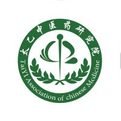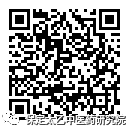“The greatest crisis of Traditional Chinese Medicine (TCM) is the lack of successors. Perhaps in less than 50 years, TCM will not need to be abolished by others; it will automatically exit the historical stage.” This is a lament from an elderly TCM practitioner. This statement is not alarmist but rather highlights the core issue of TCM talent cultivation.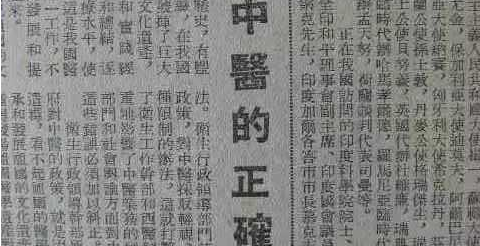 According to incomplete statistics, there are approximately 5.5 million practitioners of Western medicine in our country, while there are only about 400,000 practitioners of TCM, a decrease of 20% compared to the 1950s. Currently, the majority of TCM practitioners are over 50 years old, and there are fewer and fewer young people interested in TCM. TCM is facing an unprecedented “inheritance crisis.”TCM higher education institutions are the cradle of TCM talent. However, even here, TCM education is facing the fate of Westernization.It has become common for students to spend 1/3 of their time learning Western medicine, 1/3 learning foreign languages, and 1/3 learning TCM.Some classic TCM courses are continuously being reduced, and even become elective courses, while Western medical theories are increasingly emphasized.Many students have high levels of foreign language and computer skills, but their understanding of Chinese traditional culture is poor; some cannot comprehend the Huangdi Neijing (Yellow Emperor’s Inner Canon) or Shanghan Lun (Treatise on Cold Damage), and some cannot even recite basic herbal properties or formulas.Even more alarming is that the higher the educational level, the further they drift from TCM characteristics.Many TCM graduate students do not focus on TCM theoretical foundations and clinical practice, but instead follow the Western medical model, researching cells and molecules, conducting a large number of animal experiments.It is said to be “equal emphasis on Chinese and Western medicine,” but in reality, it is “heavy on Western and light on Chinese.”As a result, many students graduate without understanding the four diagnostic methods of TCM (observation, listening, inquiry, and palpation), nor can they prescribe or dispense herbs; they are called TCM practitioners but are essentially Western medicine practitioners.Some experts sharply point out:“Modern TCM education has turned students into half-finished products who are neither proficient in TCM nor knowledgeable in Western medicine, cultivating a group of grave diggers for TCM.” Although this statement is extreme, it is not without reason.The traditional model of apprenticeship in TCM education, where knowledge is passed down from master to apprentice, has been the foundation of TCM talent cultivation in our country.For thousands of years, this model has produced many renowned practitioners with superb medical skills. Oral transmission and tailored teaching have become a significant feature of TCM education.However, today, many TCM practitioners trained through the apprenticeship system, although highly skilled, lack sufficient knowledge of Western medicine and cannot pass the licensing examination, thus unable to obtain legal qualifications, and can only be considered “folk doctors,” surviving by practicing medicine secretly.
According to incomplete statistics, there are approximately 5.5 million practitioners of Western medicine in our country, while there are only about 400,000 practitioners of TCM, a decrease of 20% compared to the 1950s. Currently, the majority of TCM practitioners are over 50 years old, and there are fewer and fewer young people interested in TCM. TCM is facing an unprecedented “inheritance crisis.”TCM higher education institutions are the cradle of TCM talent. However, even here, TCM education is facing the fate of Westernization.It has become common for students to spend 1/3 of their time learning Western medicine, 1/3 learning foreign languages, and 1/3 learning TCM.Some classic TCM courses are continuously being reduced, and even become elective courses, while Western medical theories are increasingly emphasized.Many students have high levels of foreign language and computer skills, but their understanding of Chinese traditional culture is poor; some cannot comprehend the Huangdi Neijing (Yellow Emperor’s Inner Canon) or Shanghan Lun (Treatise on Cold Damage), and some cannot even recite basic herbal properties or formulas.Even more alarming is that the higher the educational level, the further they drift from TCM characteristics.Many TCM graduate students do not focus on TCM theoretical foundations and clinical practice, but instead follow the Western medical model, researching cells and molecules, conducting a large number of animal experiments.It is said to be “equal emphasis on Chinese and Western medicine,” but in reality, it is “heavy on Western and light on Chinese.”As a result, many students graduate without understanding the four diagnostic methods of TCM (observation, listening, inquiry, and palpation), nor can they prescribe or dispense herbs; they are called TCM practitioners but are essentially Western medicine practitioners.Some experts sharply point out:“Modern TCM education has turned students into half-finished products who are neither proficient in TCM nor knowledgeable in Western medicine, cultivating a group of grave diggers for TCM.” Although this statement is extreme, it is not without reason.The traditional model of apprenticeship in TCM education, where knowledge is passed down from master to apprentice, has been the foundation of TCM talent cultivation in our country.For thousands of years, this model has produced many renowned practitioners with superb medical skills. Oral transmission and tailored teaching have become a significant feature of TCM education.However, today, many TCM practitioners trained through the apprenticeship system, although highly skilled, lack sufficient knowledge of Western medicine and cannot pass the licensing examination, thus unable to obtain legal qualifications, and can only be considered “folk doctors,” surviving by practicing medicine secretly.
They follow family inheritance models, and some “secret techniques” are often unwilling to be disclosed, leading to the loss of many valuable prescriptions.
The lack of TCM talent is closely related to the poor state of TCM hospitals.Currently, most TCM hospitals in our country are struggling to survive. Due to the low fees for TCM services, which do not reflect the technical content of TCM, many TCM hospitals have to abandon their “Chinese” identity and adopt Western practices, with diagnoses and treatments almost indistinguishable from Western hospitals.For example:For patients with closed fractures, using TCM bone-setting techniques not only causes less pain and has better efficacy but is also cheaper. However, many TCM hospitals have abandoned traditional bone-setting techniques in favor of Western surgical treatments that are more traumatic and expensive to increase profits.Moreover, traditional TCM services such as acupuncture and massage are charged at very low rates, often failing to cover even the costs. Under such a system, many TCM practitioners work hard their entire lives but end up in poverty, while Western practitioners enjoy high social status and substantial income.In the Chinese medical system, TCM and Western medicine are like the two wings of a bird; neither can be absent. Compared to Western medicine, the greatest challenge facing TCM is not development but survival.Some assert: If TCM cannot be passed down, with the older generation of TCM practitioners passing away, China will only become a “homeland of TCM” in textbooks, and even TCM talent will need to be imported from Japan and South Korea!If this is true, we will be ashamed of our ancestors!“I see no ancient people in front, and no successors behind. Reflecting on the vastness of heaven and earth, I can’t help but shed tears.” The ancient figures of Bian Que and Hua Tuo have long since passed, but where is the next generation of Bian Que and Hua Tuo? Reflecting on the past and observing the present, who can be unconcerned about the fate of TCM?Further ReadingSource: Blog of Elder TCM Practitioner Chen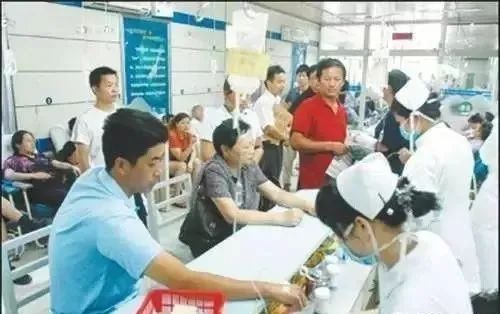 On the Reasons for the Decline of TCMThis article was written in the first half of 2006 at the request of Luo Shiwen, Director of the Market Department of the State Food and Drug Administration, who said that the State Council was preparing to hold a symposium on TCM and asked me to write an opinion on the problems facing TCM development, hence this article.Faced with the clamor both domestically and internationally to “abolish TCM” and “say goodbye to TCM,” as a TCM worker, I feel an immense anger. Is it true that TCM has no efficacy and should be thrown into the dustbin of history?The reasons for the current situation, in my opinion, are as follows:1. TCM colleges are not cultivating successors of TCM but are producing a large number of grave diggers for TCM.Li Zhizhong pointed out in “The Theoretical Issues of TCM Going Global” that “the development of academia relies on talent, and the growth of talent relies on education.” “The success of education depends on curriculum design and textbooks.”I investigated the teaching plan of Hunan University of Traditional Chinese Medicine, and here is the list:Marxist Philosophy (54 hours), Introduction to Mao Zedong Thought (36 hours), Deng Xiaoping Theory (70 hours), Political Economy (40 hours), Moral Education (51 hours), Basic Law (43 hours), College English (300 hours), Computer Applications (108 hours), Physical Education (144 hours), totaling 846 hours;TCM-related courses:Classical Chinese Medicine (72 hours), Basic Theory of TCM (90 hours), TCM Diagnostics (90 hours), Pharmacognosy (90 hours), Formula Studies (90 hours), TCM Internal Medicine (126 hours), TCM Surgery (72 hours), TCM Gynecology (90 hours), TCM Pediatrics (54 hours), totaling 702 hours.Western medicine courses:Anatomy and Histology (118 hours), Physiology (72 hours), Biochemistry (72 hours), Pathogen and Immunology (72 hours), Pathology (54 hours), Pharmacology (54 hours), Western Medicine Diagnostics (108 hours), Western Internal Medicine (108 hours), Emergency Medicine (54 hours), Western Surgery (54 hours), Medical Biology (27 hours), Nursing Skills Training (27 hours), totaling 820 hours (not including laboratory hours).
On the Reasons for the Decline of TCMThis article was written in the first half of 2006 at the request of Luo Shiwen, Director of the Market Department of the State Food and Drug Administration, who said that the State Council was preparing to hold a symposium on TCM and asked me to write an opinion on the problems facing TCM development, hence this article.Faced with the clamor both domestically and internationally to “abolish TCM” and “say goodbye to TCM,” as a TCM worker, I feel an immense anger. Is it true that TCM has no efficacy and should be thrown into the dustbin of history?The reasons for the current situation, in my opinion, are as follows:1. TCM colleges are not cultivating successors of TCM but are producing a large number of grave diggers for TCM.Li Zhizhong pointed out in “The Theoretical Issues of TCM Going Global” that “the development of academia relies on talent, and the growth of talent relies on education.” “The success of education depends on curriculum design and textbooks.”I investigated the teaching plan of Hunan University of Traditional Chinese Medicine, and here is the list:Marxist Philosophy (54 hours), Introduction to Mao Zedong Thought (36 hours), Deng Xiaoping Theory (70 hours), Political Economy (40 hours), Moral Education (51 hours), Basic Law (43 hours), College English (300 hours), Computer Applications (108 hours), Physical Education (144 hours), totaling 846 hours;TCM-related courses:Classical Chinese Medicine (72 hours), Basic Theory of TCM (90 hours), TCM Diagnostics (90 hours), Pharmacognosy (90 hours), Formula Studies (90 hours), TCM Internal Medicine (126 hours), TCM Surgery (72 hours), TCM Gynecology (90 hours), TCM Pediatrics (54 hours), totaling 702 hours.Western medicine courses:Anatomy and Histology (118 hours), Physiology (72 hours), Biochemistry (72 hours), Pathogen and Immunology (72 hours), Pathology (54 hours), Pharmacology (54 hours), Western Medicine Diagnostics (108 hours), Western Internal Medicine (108 hours), Emergency Medicine (54 hours), Western Surgery (54 hours), Medical Biology (27 hours), Nursing Skills Training (27 hours), totaling 820 hours (not including laboratory hours).
The selections of the Neijing, acupuncture and massage, Shanghan Lun, and Jin Kui Yao Lue are all elective courses. This teaching plan is compiled according to the teaching outline and plan set by the Ministry of Health and the National Administration of Traditional Chinese Medicine. According to this plan, a student in a higher TCM institution studies TCM for less than one-third of their time in four years.
Can this cultivate qualified TCM talent?According to the preface of Dr. He Zudao, author of “On the Survival of TCM,” he abandoned teaching for medicine in 1978 and entered Hunan University of Traditional Chinese Medicine, stating, “In the first three semesters, I could hardly understand what the teachers were talking about, especially with the simultaneous courses of Basic TCM and Western Anatomy, which clashed the most. It wasn’t until three years later that I roughly understood what TCM was.” “Among my classmates, there were ‘TCM factions’ and ‘Westernized factions,’ with the latter being overwhelmingly dominant.” The majority of graduates from TCM colleges oppose TCM, which is the crux of the problem.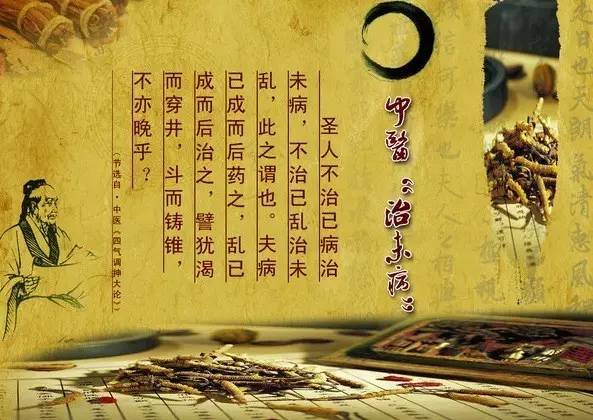 2. The golden rules set by health administrative departments are self-destructive to TCM.In the current TCM management regulations, it is illegal for TCM practitioners to prepare their own medications for patients, regardless of their efficacy, and they are treated as counterfeit drugs. This regulation has brought disaster to TCM, depriving many TCM practitioners of their skills in treating patients, especially in TCM surgery and external treatments, which have traditionally involved self-prepared pills, powders, ointments, and plasters, characterized by simplicity, convenience, low cost, and effectiveness, and are well-loved by patients. According to the preface of the famous TCM surgeon Wu Shangxian from the Qing Dynasty:Even though I had to avoid my hometown due to war, my reputation spread “two to three hundred miles away, with five to six dozen boats coming to see me.” “In one month, I treated over 20,000 people, and I became ill due to overwork; now I can only limit myself to a hundred patients a day.”Moreover, modern Beijing surgeons such as Fang (Zhixuan), Ha (Ruichuan), and Zhao (Bingnan) could prepare hundreds of external medications and enjoyed a great reputation in the capital; their exceptional skills have likely been lost. The golden rules set by health administrative departments, under the guise of strengthening management and preventing counterfeit and inferior drugs from flooding the market, have actually led to the extinction of genuine TCM practices. They have deprived TCM practitioners of their skills, especially in external treatments, which have traditionally involved self-prepared medications that are simple, effective, and well-received by patients. Historically, TCM practitioners could prepare medications for patients without encountering fraud, but now, the more the health administrative departments manage, the more fraudsters proliferate. Isn’t this worth pondering for the health administrative departments?Next, I will tell the story of a great TCM practitioner who was buried. Professor Wang Zhenxing from Hunan Medical University, who graduated from Hunan Medical College, told me that he originally did not believe in TCM, thinking that TCM practitioners were all frauds selling dog-skin plaster. One incident completely changed his view of TCM. In 1968, he performed surgery on a liver cancer patient at Hunan Provincial People’s Hospital. Upon opening, he found that the cancer cells had metastasized to the spleen and peritoneum. He did not perform any treatment and simply sutured the patient, telling the family that the patient had at most 1-3 months to live and to prepare some good food for him. Six months later, the patient and his family returned to the provincial hospital to find him, saying, “Dr. Wang, you said he could live for at most 1-3 months, but now it has been over six months, and he is not only better but can also work in the fields.”Professor Wang carefully examined him, and indeed, he had recovered. Professor Wang asked the patient what treatment he had received after returning home, and the patient said, “I found a rural herbal doctor and took herbal medicine for over a month, and I got better.” Professor Wang immediately reported this to the medical department, which sent someone to Yueyang to investigate. This rural herbal doctor flatly refused to acknowledge that he had treated the patient and claimed he could not treat diseases. The medical department tracked the patient for three years, but the liver cancer did not recur, and they repeatedly sought out this herbal doctor.This expert, due to today’s golden rules, had to deny his involvement for self-preservation; otherwise, he would face charges of illegal medical practice, which could lead to endless troubles. A genius cancer expert was buried. Professor Wang told me, “From then on, I believed in TCM; there are indeed great practitioners in TCM, and TCM is profound and unfathomable.” In the early days of liberation, there was a mechanism for hiring talented individuals from the folk, but unfortunately, it was later abolished, leading to the burial of many talented practitioners.
2. The golden rules set by health administrative departments are self-destructive to TCM.In the current TCM management regulations, it is illegal for TCM practitioners to prepare their own medications for patients, regardless of their efficacy, and they are treated as counterfeit drugs. This regulation has brought disaster to TCM, depriving many TCM practitioners of their skills in treating patients, especially in TCM surgery and external treatments, which have traditionally involved self-prepared pills, powders, ointments, and plasters, characterized by simplicity, convenience, low cost, and effectiveness, and are well-loved by patients. According to the preface of the famous TCM surgeon Wu Shangxian from the Qing Dynasty:Even though I had to avoid my hometown due to war, my reputation spread “two to three hundred miles away, with five to six dozen boats coming to see me.” “In one month, I treated over 20,000 people, and I became ill due to overwork; now I can only limit myself to a hundred patients a day.”Moreover, modern Beijing surgeons such as Fang (Zhixuan), Ha (Ruichuan), and Zhao (Bingnan) could prepare hundreds of external medications and enjoyed a great reputation in the capital; their exceptional skills have likely been lost. The golden rules set by health administrative departments, under the guise of strengthening management and preventing counterfeit and inferior drugs from flooding the market, have actually led to the extinction of genuine TCM practices. They have deprived TCM practitioners of their skills, especially in external treatments, which have traditionally involved self-prepared medications that are simple, effective, and well-received by patients. Historically, TCM practitioners could prepare medications for patients without encountering fraud, but now, the more the health administrative departments manage, the more fraudsters proliferate. Isn’t this worth pondering for the health administrative departments?Next, I will tell the story of a great TCM practitioner who was buried. Professor Wang Zhenxing from Hunan Medical University, who graduated from Hunan Medical College, told me that he originally did not believe in TCM, thinking that TCM practitioners were all frauds selling dog-skin plaster. One incident completely changed his view of TCM. In 1968, he performed surgery on a liver cancer patient at Hunan Provincial People’s Hospital. Upon opening, he found that the cancer cells had metastasized to the spleen and peritoneum. He did not perform any treatment and simply sutured the patient, telling the family that the patient had at most 1-3 months to live and to prepare some good food for him. Six months later, the patient and his family returned to the provincial hospital to find him, saying, “Dr. Wang, you said he could live for at most 1-3 months, but now it has been over six months, and he is not only better but can also work in the fields.”Professor Wang carefully examined him, and indeed, he had recovered. Professor Wang asked the patient what treatment he had received after returning home, and the patient said, “I found a rural herbal doctor and took herbal medicine for over a month, and I got better.” Professor Wang immediately reported this to the medical department, which sent someone to Yueyang to investigate. This rural herbal doctor flatly refused to acknowledge that he had treated the patient and claimed he could not treat diseases. The medical department tracked the patient for three years, but the liver cancer did not recur, and they repeatedly sought out this herbal doctor.This expert, due to today’s golden rules, had to deny his involvement for self-preservation; otherwise, he would face charges of illegal medical practice, which could lead to endless troubles. A genius cancer expert was buried. Professor Wang told me, “From then on, I believed in TCM; there are indeed great practitioners in TCM, and TCM is profound and unfathomable.” In the early days of liberation, there was a mechanism for hiring talented individuals from the folk, but unfortunately, it was later abolished, leading to the burial of many talented practitioners.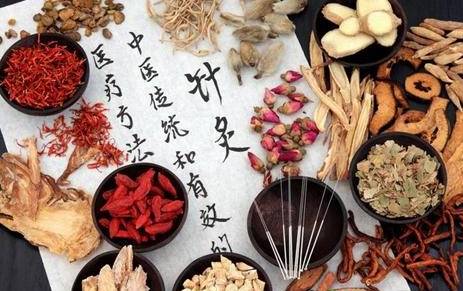 After Professor Wang retired, I opened a small clinic opposite the outpatient department of Xiangya Hospital affiliated with Hunan Medical University. Some mocked us, saying, “You are showing off your skills in front of an expert.” The real thing is not afraid of competition; after the clinic opened, patients flocked to us, and we were even recognized as an advanced clinic by the Changsha Health Bureau. However, due to a restructuring order issued by Premier Li Peng, which imposed strict conditions on private clinics, we voluntarily closed to avoid legal issues. The government’s decree to regulate the medical market, without distinguishing between good and bad, has resulted in genuine practitioners disappearing while fraudsters become more rampant. It is like using pesticides to eliminate natural enemies, leading to the proliferation of pests; the principle is the same. The correct approach is for administrative management departments to vigorously support genuine TCM practitioners with real skills, providing them with a good development environment. The more good and genuine things there are, the less market there will be for the fake ones. Even if someone tries to counterfeit, they can only pretend to be a famous brand, which is not so easy. For example, in Beijing, no one would dare to claim to be from “Xiehe Hospital’s outpatient department.” They would at most say they are retired experts from Xiehe Hospital, so management of these retired medical experts should be strengthened.It is said that the regulations set by health administrative departments are based on the FDA regulations from the United States, where TCM practitioners can prepare their own herbal medications, but they must label them as “not FDA approved and indicate the ingredients, to be taken according to medical advice.” As long as the patient agrees, they can take them, and of course, if an incident occurs, the doctor is responsible. Deep-sea fish oil capsules are sold in supermarkets in the United States, with labels stating, “Not FDA approved and should not be regarded as a drug for diagnosing, preventing, or treating any disease.” In China, deep-sea fish oil capsules can be widely advertised for their therapeutic effects, and such advertisements must be approved by health administrative departments. Is this ignorance of the regulatory authorities or something else? What is allowed in the U.S. (allowing TCM practitioners to prepare their own herbal medications) is not introduced here, while what is not allowed (like deep-sea fish oil capsules) is rampant in China, which is truly puzzling.3. The Misguided Direction of TCM ResearchAfter the founding of New China, leaders like Wang Bin and He Cheng promoted the eradication of TCM, which was criticized and led to their dismissal. In 1956, Mao Zedong proposed, “Combine the knowledge of TCM and Western medicine to create a new medicine and new pharmacology unique to China.” Mao Zedong was a politician and military strategist, not a medical expert. Some naive experts and scholars devoted their lives to creating new medicine and pharmacology, which, like creating a perpetual motion machine, was doomed to fail. The disciples of Yu Yunxiu took advantage of this directive to reform TCM with Western medicine, effectively abolishing TCM.TCM and Western medicine belong to different medical systems, each with its own complete theoretical foundation, but both serve the purpose of preventing and treating human diseases. Therefore, whether TCM or Western medicine, if it can cure diseases, it is good medicine; whether it is TCM or Western medicine, if it has good clinical efficacy, it is good medicine. Clinical efficacy is the only standard for evaluating all medical products.
After Professor Wang retired, I opened a small clinic opposite the outpatient department of Xiangya Hospital affiliated with Hunan Medical University. Some mocked us, saying, “You are showing off your skills in front of an expert.” The real thing is not afraid of competition; after the clinic opened, patients flocked to us, and we were even recognized as an advanced clinic by the Changsha Health Bureau. However, due to a restructuring order issued by Premier Li Peng, which imposed strict conditions on private clinics, we voluntarily closed to avoid legal issues. The government’s decree to regulate the medical market, without distinguishing between good and bad, has resulted in genuine practitioners disappearing while fraudsters become more rampant. It is like using pesticides to eliminate natural enemies, leading to the proliferation of pests; the principle is the same. The correct approach is for administrative management departments to vigorously support genuine TCM practitioners with real skills, providing them with a good development environment. The more good and genuine things there are, the less market there will be for the fake ones. Even if someone tries to counterfeit, they can only pretend to be a famous brand, which is not so easy. For example, in Beijing, no one would dare to claim to be from “Xiehe Hospital’s outpatient department.” They would at most say they are retired experts from Xiehe Hospital, so management of these retired medical experts should be strengthened.It is said that the regulations set by health administrative departments are based on the FDA regulations from the United States, where TCM practitioners can prepare their own herbal medications, but they must label them as “not FDA approved and indicate the ingredients, to be taken according to medical advice.” As long as the patient agrees, they can take them, and of course, if an incident occurs, the doctor is responsible. Deep-sea fish oil capsules are sold in supermarkets in the United States, with labels stating, “Not FDA approved and should not be regarded as a drug for diagnosing, preventing, or treating any disease.” In China, deep-sea fish oil capsules can be widely advertised for their therapeutic effects, and such advertisements must be approved by health administrative departments. Is this ignorance of the regulatory authorities or something else? What is allowed in the U.S. (allowing TCM practitioners to prepare their own herbal medications) is not introduced here, while what is not allowed (like deep-sea fish oil capsules) is rampant in China, which is truly puzzling.3. The Misguided Direction of TCM ResearchAfter the founding of New China, leaders like Wang Bin and He Cheng promoted the eradication of TCM, which was criticized and led to their dismissal. In 1956, Mao Zedong proposed, “Combine the knowledge of TCM and Western medicine to create a new medicine and new pharmacology unique to China.” Mao Zedong was a politician and military strategist, not a medical expert. Some naive experts and scholars devoted their lives to creating new medicine and pharmacology, which, like creating a perpetual motion machine, was doomed to fail. The disciples of Yu Yunxiu took advantage of this directive to reform TCM with Western medicine, effectively abolishing TCM.TCM and Western medicine belong to different medical systems, each with its own complete theoretical foundation, but both serve the purpose of preventing and treating human diseases. Therefore, whether TCM or Western medicine, if it can cure diseases, it is good medicine; whether it is TCM or Western medicine, if it has good clinical efficacy, it is good medicine. Clinical efficacy is the only standard for evaluating all medical products.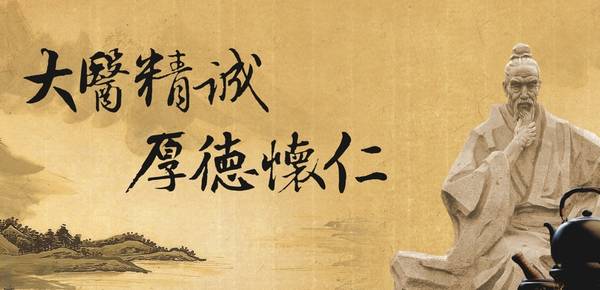 I believe that the fundamental mechanisms by which TCM and Western medicine affect human diseases are the same. Western physiology posits that the balance of the internal environment and the homeostasis of the body are the basis for maintaining life activities; when the internal environment is imbalanced, the homeostasis of the body is disrupted to some extent, which is the basis for disease occurrence. TCM emphasizes the balance of Yin and Yang in the body, stating that “when Yin is balanced, Yang is secret,” meaning that the balance of Yin and Yang is the foundation of life activities. When this balance is disrupted, the imbalance of Yin and Yang is the basis for disease occurrence. The discussions on the basis of disease occurrence in both TCM and Western medicine are the same. Why is it said that the balance of Yin and Yang in TCM is equivalent to the balance of the internal environment in Western medicine? Western medicine refers to isotonic dehydration and hypotonic dehydration (which TCM calls “Yin deficiency”), and hypertonic dehydration (which TCM calls “Yang deficiency”); their causes and clinical symptoms are the same in both TCM and Western medicine. Dr. Zhao Guoqiu from Wuhan, Hubei, has proven through 40 years of research that both Yin deficiency and Yang deficiency can be validated by Western medical internal environment detection indicators.The differences between TCM and Western medicine lie in their methods and approaches to treating diseases, as well as the differences in medications used. Western medicine treats diseases by blocking and suppressing positive reactions, akin to the way Gun controlled the waters, using obstruction; while TCM treats diseases by promoting drainage, regulating, and balancing Yin and Yang, similar to how Dayu controlled the waters, using dredging. TCM uses natural medicines, while Western medicine uses chemical drugs. Western medicine considers TCM to be food, while humans rely on the intake of natural food for growth and development. Western medicine has analyzed how many types of vitamins and amino acids are needed for human growth and development and has produced various vitamins and amino acids through chemical synthesis. Although these chemical drugs can maintain human life, if humans relied on these chemical drugs for long-term survival, humanity would have perished long ago.Now, whenever it is mentioned that TCM can treat diseases, some people use Western medical thinking to question what chemical components it contains and desperately try to test, analyze, and extract them. This approach of using Western medical thinking to study TCM has even been included in the national scientific development outline, which cannot be said to be a tragedy. So how can TCM integrate with modernity? Modern scientific detection instruments and testing methods should not only belong to Western medicine; TCM should also fully utilize them for its own service, as it has always been TCM’s goal to observe the five internal organs. The Shiji (Records of the Grand Historian) states:Bian Que could “see a person from a distance and diagnose diseases, fully understanding the issues of the five internal organs.” The pathological changes obtained by Western medicine through dissection should also be acknowledged by TCM, providing a basis for TCM prescriptions and medications. For example, in liver cirrhosis, modern Western medicine pathology shows that liver cells undergo extensive degeneration and necrosis, forming regenerative nodules (which TCM refers to as “issues”), and the regenerative nodules compress the branches of the hepatic veins, causing portal hypertension, which leads to splenomegaly, hepatic sinus congestion, gastrointestinal bleeding, and ascites. Due to the necrosis of liver cells or the pyrogens produced by the intestines, low-grade fever symptoms appear. Although Western medicine has a clear understanding of the pathological changes in liver cirrhosis, it has no medications or techniques for treatment. The famous TCM practitioner Zhu Liangchun from Nantong has extensively researched ancient texts and found that “Ainlizi, bitter and slightly cold, is indicated for blood stasis in the five internal organs, abdominal water, and heat retention.”This treatment function aligns well with the symptoms of liver cirrhosis, and using Ainlizi with Cheqianzi has proven effective in treating liver cirrhosis, thus creating an excellent prescription for liver cirrhosis. This kind of innovation by Master Zhu represents the correct direction for TCM research.When the “past” meets the “present,” when “the final stage of life” meets “the beginning stage of life,” they understand how to give and share, bringing joy to both young and old, with each gaining something. These two new models of elderly care are worth our reference and learning!
I believe that the fundamental mechanisms by which TCM and Western medicine affect human diseases are the same. Western physiology posits that the balance of the internal environment and the homeostasis of the body are the basis for maintaining life activities; when the internal environment is imbalanced, the homeostasis of the body is disrupted to some extent, which is the basis for disease occurrence. TCM emphasizes the balance of Yin and Yang in the body, stating that “when Yin is balanced, Yang is secret,” meaning that the balance of Yin and Yang is the foundation of life activities. When this balance is disrupted, the imbalance of Yin and Yang is the basis for disease occurrence. The discussions on the basis of disease occurrence in both TCM and Western medicine are the same. Why is it said that the balance of Yin and Yang in TCM is equivalent to the balance of the internal environment in Western medicine? Western medicine refers to isotonic dehydration and hypotonic dehydration (which TCM calls “Yin deficiency”), and hypertonic dehydration (which TCM calls “Yang deficiency”); their causes and clinical symptoms are the same in both TCM and Western medicine. Dr. Zhao Guoqiu from Wuhan, Hubei, has proven through 40 years of research that both Yin deficiency and Yang deficiency can be validated by Western medical internal environment detection indicators.The differences between TCM and Western medicine lie in their methods and approaches to treating diseases, as well as the differences in medications used. Western medicine treats diseases by blocking and suppressing positive reactions, akin to the way Gun controlled the waters, using obstruction; while TCM treats diseases by promoting drainage, regulating, and balancing Yin and Yang, similar to how Dayu controlled the waters, using dredging. TCM uses natural medicines, while Western medicine uses chemical drugs. Western medicine considers TCM to be food, while humans rely on the intake of natural food for growth and development. Western medicine has analyzed how many types of vitamins and amino acids are needed for human growth and development and has produced various vitamins and amino acids through chemical synthesis. Although these chemical drugs can maintain human life, if humans relied on these chemical drugs for long-term survival, humanity would have perished long ago.Now, whenever it is mentioned that TCM can treat diseases, some people use Western medical thinking to question what chemical components it contains and desperately try to test, analyze, and extract them. This approach of using Western medical thinking to study TCM has even been included in the national scientific development outline, which cannot be said to be a tragedy. So how can TCM integrate with modernity? Modern scientific detection instruments and testing methods should not only belong to Western medicine; TCM should also fully utilize them for its own service, as it has always been TCM’s goal to observe the five internal organs. The Shiji (Records of the Grand Historian) states:Bian Que could “see a person from a distance and diagnose diseases, fully understanding the issues of the five internal organs.” The pathological changes obtained by Western medicine through dissection should also be acknowledged by TCM, providing a basis for TCM prescriptions and medications. For example, in liver cirrhosis, modern Western medicine pathology shows that liver cells undergo extensive degeneration and necrosis, forming regenerative nodules (which TCM refers to as “issues”), and the regenerative nodules compress the branches of the hepatic veins, causing portal hypertension, which leads to splenomegaly, hepatic sinus congestion, gastrointestinal bleeding, and ascites. Due to the necrosis of liver cells or the pyrogens produced by the intestines, low-grade fever symptoms appear. Although Western medicine has a clear understanding of the pathological changes in liver cirrhosis, it has no medications or techniques for treatment. The famous TCM practitioner Zhu Liangchun from Nantong has extensively researched ancient texts and found that “Ainlizi, bitter and slightly cold, is indicated for blood stasis in the five internal organs, abdominal water, and heat retention.”This treatment function aligns well with the symptoms of liver cirrhosis, and using Ainlizi with Cheqianzi has proven effective in treating liver cirrhosis, thus creating an excellent prescription for liver cirrhosis. This kind of innovation by Master Zhu represents the correct direction for TCM research.When the “past” meets the “present,” when “the final stage of life” meets “the beginning stage of life,” they understand how to give and share, bringing joy to both young and old, with each gaining something. These two new models of elderly care are worth our reference and learning!
In your spare time, learn some TCM techniques to adjust your body for yourself and your family.Among all forms of giving, the giving of the Dharma is the greatest. Sharing an article filled with wisdom and positive energy with others is practicing the giving of the Dharma; it may save many people and change their confused lives, leading them towards the light. Thank you for sharing, allowing more people to benefit.
There are no advertisements or rumors here; long press the QR code to follow for more positive health knowledge!
⊙This article is shared from the internet, and the original author cannot be verified. The content is for public welfare sharing only; please follow medical advice for specific treatments and medications!Copyright belongs to the original author; if there are any objections, please contact [email protected] for timely deletion.

